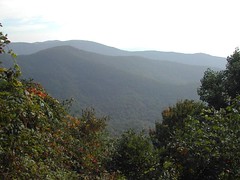Factchecking, or pandering to the rumor crowd?
Washington Post editorial cartoonist Tom Toles summarizes, in a contrarian way....
In text, The Guardian's Comment is Free has the best summarization of the reaction from blogs and other media, with lots of links: Reporting Rumor and Innuendo.
I love the lead-in to this quote (my emphasis):
The fact-based portion of the web responded fiercely. The estimable Digby at her Hullabaloo website said "it might have been a teensy bit better if they'd simply written that it's a lie and let it go at that. ... According to the Washington Post, 'Republicans say Barack Obama is a Muslim and Obama says he isn't' is a legitimate story. Modern campaign journalism in all its glory."
It's sad when the 'fact-based portion of the Web' isn't a major newspaper's story. But it's typical of the hand-wringing, too-sensitive editorial decisions going on at times in the media. Trying too hard not to offend anyone, they offend everybody.
I'm watching the public flagellation over the questioners at the last Republican 'debate', too. So, a questioner is connected with a Democratic campaign. So what? Shouldn't any American be able to ask a question at one of these things? Should all the questioners be 'friendly'? Why should CNN 'regret' their not vetting questioners better?
We are getting entirely too hung up in details over this presidential campaign. Can't we stick to the real issues? I'm tired of the candidates' attacks on each other. All of them.
Meanwhile, at least one attack does seem to have merit, the questioning over Giuliani's mayoral expenditures used on his then-mistress. Bill Clinton got attacked furiously for his sexual indiscretions, but the only attention to Giuliani's seems to be one-sided, from Talking Points Memo and other progressive blogs.
At least the New York Times has come out with an impressive piece analyzing all of Giuliani's statistical pronouncements and finding lots of errors and diversions: Citing Statistics, Giuliani Misses Time and Again. The Horse's Mouth reacts.
Thank goodness, again, for the media sites that do keep factchecking the candidates and the media: Politifact, The Washington Post's Factchecker, and FactCheck.org.
Labels: news research, newspapers, politics







